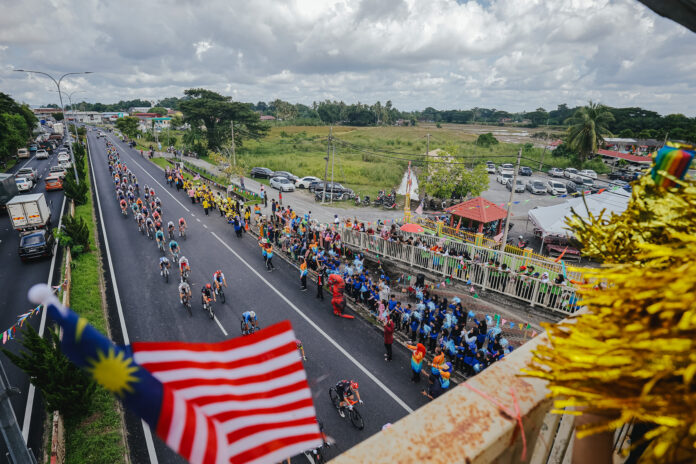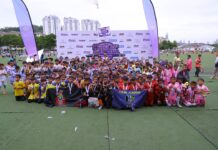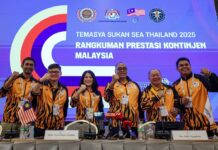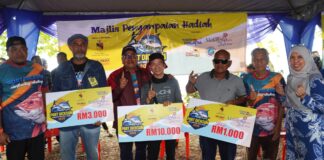By Dr. Sara Shakilla Mohd Salim
KUALA LUMPUR, Sept 20th – Asia’s most prominent cycling competitions, the Le Tour de Langkawi (LTdL) has been a mainstay of the UCI ProSeries schedule since its founding in 1996.
It serves as a national exhibition of identity, culture and hospitality in addition to being a professional athletic event, winding through Malaysia’s beaches, mountains and rural landscapes.
LTdL has become a national platform for showcasing not only Malaysia’s athletic potential, but also its vibrant communities, economic impact, cultural richness, social harmony and tourism promise.
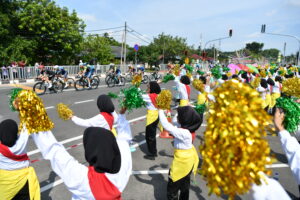
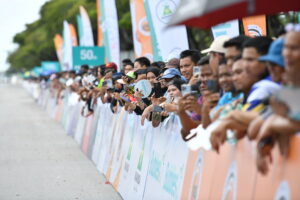 It provides exceptional opportunity for cyclists from Asia and other developing nations to compete against elite WorldTeam and Pro Continental teams. Participation is a career milestone for rising riders, exposing them to difficult terrain, tactical racing and high-level competition.
It provides exceptional opportunity for cyclists from Asia and other developing nations to compete against elite WorldTeam and Pro Continental teams. Participation is a career milestone for rising riders, exposing them to difficult terrain, tactical racing and high-level competition.
The event schedule makes it a strategic testing ground for professional squads to fine-tune race fitness and team strategy, as well as a springboard for local talent to acquire international prominence.
Malaysia benefits economically from the race, especially from tourism related income – spending on accommodations, food, transportation and services benefits towns along the route, while significant international TV coverage generates millions in advertising value. LTdL promotes national goals in the Malaysian Sports Industry Blueprint and National Tourism Policy by highlighting areas outside of conventional tourism destinations.
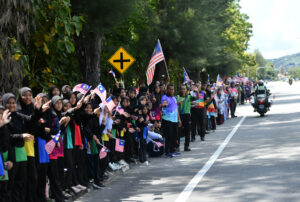 Le Tour de Langkawi (LTdL) has demonstrated substantial economic impacts, particularly in terms of tourism-driven revenue, infrastructure development and media exposure, all contributing to a measurable return on investment (ROI) for the Malaysian government and stakeholders.
Le Tour de Langkawi (LTdL) has demonstrated substantial economic impacts, particularly in terms of tourism-driven revenue, infrastructure development and media exposure, all contributing to a measurable return on investment (ROI) for the Malaysian government and stakeholders.
Hosting the event stimulates local economies along the race route through increased visitor spending on accommodation, food, transportation and related services (Ministry of Youth and Sports Malaysia, 2023).
Estimated overall expenditure from the visitor survey dataset of respondents reached RM303,973.00, with an average individual income of RM2,732.13 and an average spending of RM426.92 equivalent to 15.63% of their earnings. The business event in this category returned 31.0% of its investment. In comparison, the venue attendance dataset (39,238 total visitors at start and finish points) had a substantially greater total spending of RM22,875,754.
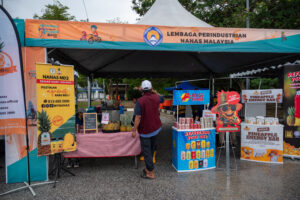 Here, the average individual income was slightly higher at RM3,045.00, while the average spending was RM583.00, accounting for 21.33% of income. At 70.49%, the ROI was significantly higher. The statistics show that larger scale attendance at start and finish locations creates much more total economic production and higher ROI than the smaller studied visitor group.
Here, the average individual income was slightly higher at RM3,045.00, while the average spending was RM583.00, accounting for 21.33% of income. At 70.49%, the ROI was significantly higher. The statistics show that larger scale attendance at start and finish locations creates much more total economic production and higher ROI than the smaller studied visitor group.
Furthermore, visitors at venue points spent a greater proportion of their income (21.33% vs. 15.63%), indicating that individuals attending major race stages are more engaged and willing to spend. Studies of events like LTdL have reported strong return on investment (ROI), often yielding 2-4 times the initial public expenditure. Furthermore, these events increase destination visibility through international media coverage, thus serving dual functions as both sporting and tourism development tools.
As shown in each host town, inhabitants band together to greet the race, volunteering, welcoming visitors and arranging events. This involvement promotes pride, enhances local leadership and creates civic networks.
According to research, LTdL is considered not only as a sporting event, but also as a symbol of national togetherness, with Malaysians from all ethnic and cultural backgrounds filling the roadways.
 It was elucidating the cohesiveness and involvement of the community. Race stages also serve as cultural platforms, showcasing traditional dances, local music, ethnic costume and regional cuisine to both domestic and foreign audiences. These activities maintain identity, encourage intergenerational participation in heritage and provide worldwide audiences with a clear picture of Malaysia’s variety.
It was elucidating the cohesiveness and involvement of the community. Race stages also serve as cultural platforms, showcasing traditional dances, local music, ethnic costume and regional cuisine to both domestic and foreign audiences. These activities maintain identity, encourage intergenerational participation in heritage and provide worldwide audiences with a clear picture of Malaysia’s variety.
LTdL’s expansive images of beaches, rainforests, highlands, and rural communities are broadcast to over 100 nations and effectively promote travel. The event complements Visit Malaysia efforts, broadens tourism advantages and promotes rural destinations, enhancing Malaysia’s reputation as a culturally rich sports tourism hub.
In essence, the event connects people across regions, cultures, and generations. It creates shared experiences that foster pride, health, and unity, proving that sport can have a lasting social impact far beyond the finish line.
Besides that, exposure to elite cycling increases public interest in the sport and active living. Following the race, local clubs and school programs frequently notice increases in participation. This complements the National Sports Vision 2030, which seeks to enhance public health and increase grassroots sports participation. Cycling events provide critical opportunities for both emerging and elite cyclists to gain competitive experience, improve performance, and attract professional advancement.
Participation in UCI-sanctioned races such as Le Tour de Langkawi (LTDL) exposes athletes to international-level competition, challenging terrain and team dynamics that enhance skill development. For cyclists from developing nations, these events serve as a springboard to global recognition and contracts with pro teams.
According to Ministry of Youth and Sports Malaysia (2022) local cycling clubs report increased participation following LTdL, demonstrating the race’s influence in inspiring active lifestyles.
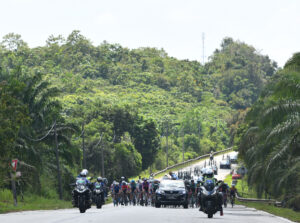 Furthermore, cycling events often involve extensive community participation, including volunteers, local authorities, schools, and cultural organizations. These well integrated sporting events can foster social capital, encouraging networks of cooperation and trust.
Furthermore, cycling events often involve extensive community participation, including volunteers, local authorities, schools, and cultural organizations. These well integrated sporting events can foster social capital, encouraging networks of cooperation and trust.
The increase in the number of visitors related to race is beneficial to small-scale entrepreneurs, including street vendors, homestay operators, and food merchants. Although these microeconomic advantages are modest, they are substantial in rural areas and contribute to the sports tourism economy.
In other side, by encouraging road improvements and occasionally cycling friendly infrastructure, LTdL subtly promotes bicycles as an eco-friendly and effective form of transportation.
The LTDL’s event celebrates Malaysia’s heterogeneous fabric and bridges rural-urban differences by embodying tenacity, solidarity, and aspiration. It creates a venue where global sport meets local pride, demonstrating that success is evaluated not just in medals but also in long term social and cultural impact.
As Malaysia establishes itself as a worldwide sports hub, LTdL remains a hallmark event, reminding us that the true finish line is in the people it unites, the cultures it honours, and the possibilities it generates.
The writer is Project Researcher/Evaluator, Faculty of Human Sciences, Universiti Pendidikan Sultan Idris (UPSI).

